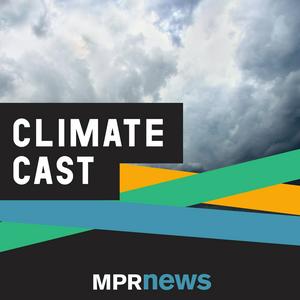Minnesota’s prairie, in the southwestern part of the state, is a biodiverse ecosystem that’s home to buffalo, bees and tall grass.
In the book, "Sea of Grass: The Conquest, Ruin and Redemption of Nature on the American Prairie," Josephine Marcotty and Dave Hage dig into the significance prairies have to the climate. MPR News chief meteorologist Paul Huttner talks with Hage in depth about the American prairie.
The following has been edited for length and clarity. Use the audio player above to listen to the full conversation.
What drew you to write about the American prairie?
The book grew out of a series that Josephine wrote when we were both working with the Minnesota Star Tribune. She was the environment reporter. I was her editor. She had come across a pair of remarkable studies, which showed that today, we are plowing up the continent's remaining grasslands. That's grasslands west of here, into the Dakotas and Montana.
We're plowing them up at the rate of a million acres a year. That's about as fast as we're destroying the Amazon rainforest. It's an environmental catastrophe, but nobody's paying attention.
It's bad for wildlife, it's bad for clean water and it's especially bad for climate change.
How do you think about the prairie in a climate context?
These grasslands are one of the greatest carbon sinks on the planet. Grasses inhale carbon dioxide from the air. They exhale oxygen. They take the carbon from that carbon dioxide, and they store it deep underground in Prairie soils. You know, these grasses can have roots that go 8-12 feet deep.
It’s estimated that the world's grassland soils hold about a third of all terrestrial carbon stocks. Jo Handelsman at the University of Wisconsin says grassland soils hold more carbon than human beings have emitted since the Industrial Revolution. When you plow open those grasslands, you release all that carbon into the atmosphere and you accelerate climate change.
Tell us a little bit about how Minnesota is working on plans to protect the prairies.
In Minnesota, we still have like 1-4 percent of the original native prairie. You find it in patches around southwestern and western Minnesota. But Minnesota is also home to the largest prairie restoration project in the United States. It's called Glacial Ridge National Wildlife Refuge. It's up near Crookston, Minn., which was running out of clean water because of agricultural pollution.
And they said, “Look, if we can convert this back to prairie, one of the things that prairie plants do is that they filter water and they give you clean groundwater.” They said to the city of Crookston, “We can guarantee you years and years supply of clean water, and so now you can go to Glacial Ridge.” It's just beautiful, huge expanse of tall grasses and wildflowers and butterflies and bees, and it's a magnificent spot.
What's your main message about climate change and the prairie?
Here's an amazing statistic we came across. There's a beautiful researcher, Tyler Lark at the University of Wisconsin, who does amazing work. He's become a buddy of ours, and here are just two data points from Tyler Lark’s work: One, he estimates that our current rate of plowing up grasslands is the same as adding 11 million cars to the road every year. It's releasing that much carbon as 11 million new cars to the road.
But conversely, he also estimated that if we can just protect the remaining grasslands and wetlands in our part of the country, we could meet 20 percent of our commitments under the Paris Climate Change accords just by leaving prairies and wetlands alone, protecting what we've still got.


